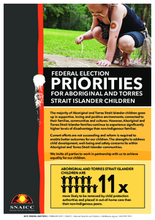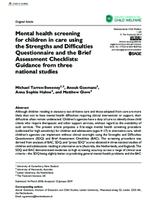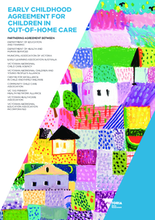

Displaying 321 - 330 of 677
This study will determine where disparities in child protection involvement exist among Aboriginal and non-Aboriginal children and characteristics associated with infant removals.
This brief from SNAICC – National Voice for our Children highlights the issue of the disproportional numbers of Aboriginal and Torres Strait Islander children in out-of-home care in Australia, which has reached "national crisis proportions," and outlines key steps that need to be taken to address this issue.
This article outlines the arguments made in recent litigation undertaken by the Public Interest Advocacy Centre (PIAC) on behalf of young people who requested access to legal audits conducted on their files by the New South Wales (NSW) Department of Family and Community Services (FACS).
This systematic literature review examines how the construct of cumulative harm is understood and operationalized within current Australian child protection legislation, policy, and practice and situates this within an international context.
Indigenous children have a long history of overrepresentation in child protection systems. This exploratory, mixed methods study examined practitioner perceptions of risk in response to client ethnic group.
The present article proposes a first-stage mental health screening procedure (calibrated for high sensitivity) for children and adolescents (ages 4–17) in alternative care, which children’s agencies can implement without clinical oversight using the Strengths and Difficulties Questionnaire (SDQ) and Brief Assessment Checklists (BAC).
The present article proposes a first-stage mental health screening procedure (calibrated for high sensitivity) for children and adolescents (ages 4–17) in alternative care, which children’s agencies can implement without clinical oversight using the Strengths and Difficulties Questionnaire (SDQ) and Brief Assessment Checklists (BAC).
The primary aim of a recent qualitative study was to optimise grandparent-grandchild connectedness after child safety concerns.
In Australia, the emerging model of child welfare policy and practice emphasises 'permanency and lifelong connections with birth families'.
The Early Childhood Agreement for Children in Out-of-Home Care (OOHC) was first developed in 2014 as a shared commitment by the Victorian Department of Education and Training (DET), the Department of Health and Human Services (DHHS), the Municipal Association of Victoria (MAV) and Early Learning Association Australia (ELAA) to support young children in OOHC in Victoria, Australia to access key early childhood services.




